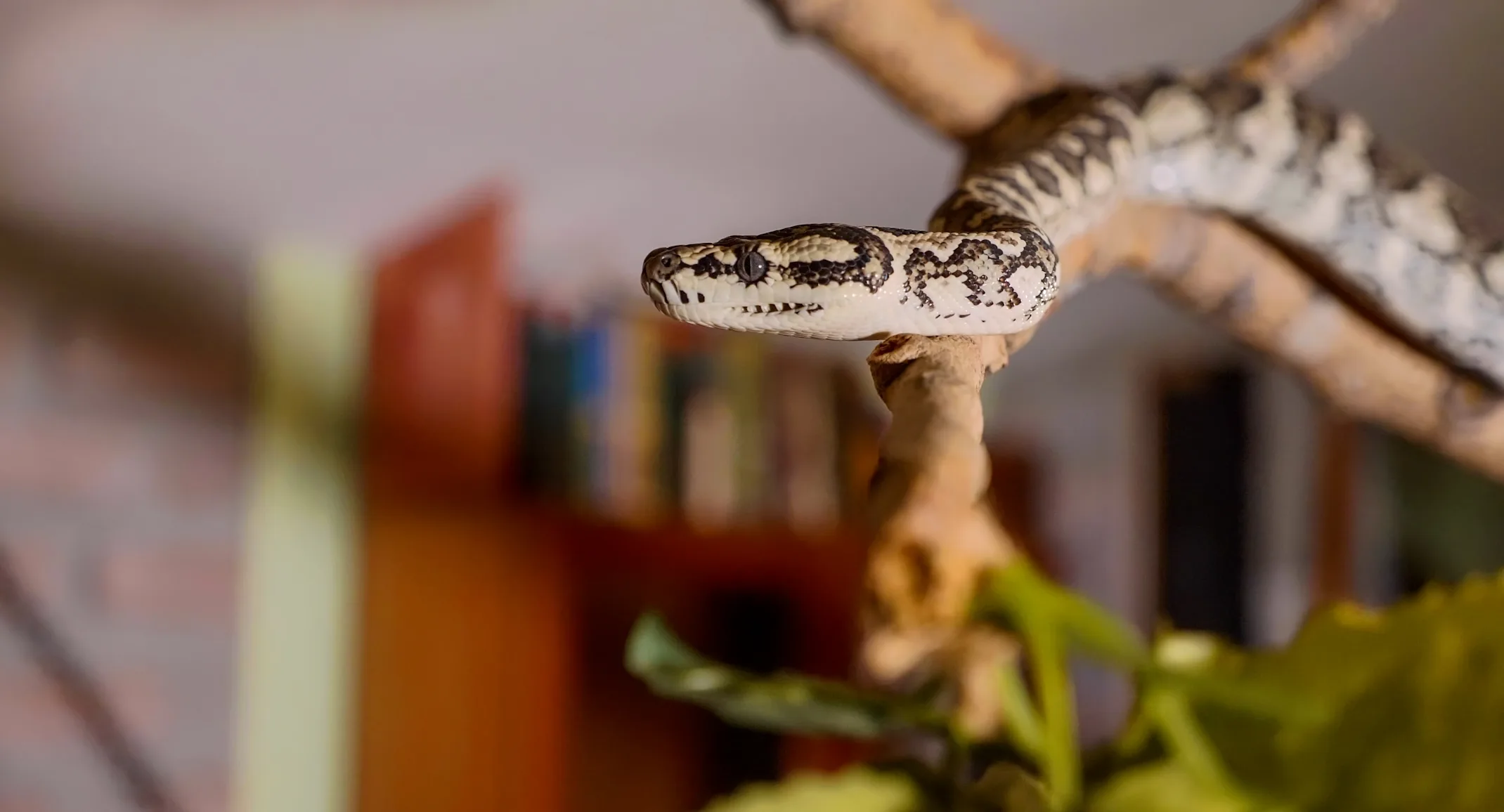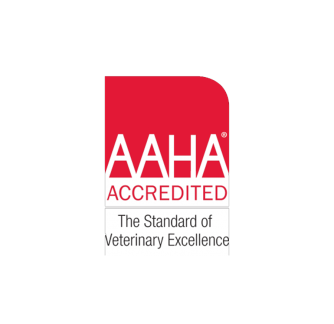Reptile Care Tips from Aloha Animal Hospital in Las Vegas, NV
April 15, 2025 · General

Scales, claws, and cool-headed charm … reptiles bring something uniquely special to the world of pet companionship. Here at Aloha Animal Hospital in Las Vegas, NV, we help reptile owners give their cold-blooded friends the same thoughtful, expert care we offer for furry, feathered, and fluffy companion animals. Whether you have a leopard gecko, ball python, bearded dragon, or something more exotic, proper care is the key to keeping your reptile thriving for the long haul.
Let’s explore the essentials of reptile care. Here are some tips, straight from your local Las Vegas vet.
The Right Reptile for Your Home
It’s important to choose the right reptile. Some reptiles, like bearded dragons or corn snakes, are ideal for beginners, thanks to their mild temperaments and manageable care needs. Others, like chameleons or iguanas, need more intensive environments and a more hands-off approach.
When deciding, consider:
How much time you can commit daily
How much space you have for an enclosure
The long-term commitment—many reptiles live 10–30 years!
Choosing the right reptile upfront helps set the stage for a positive experience for both you and your scaly companion.
Enclosure: More Than a Tank
Your reptile’s enclosure isn’t just a box—it’s their entire ecosystem. The enclosure must replicate the temperature, humidity, lighting, and layout of your pet’s natural habitat. These can vary quite widely, so be sure to do some research.
Reptile enclosures should include:
A basking area and a cool zone
A safe, appropriate substrate
Hideouts for privacy and low-stress rest
Climbing branches or flat rocks depending on species
UVB lighting and regulated heat sources
Appropriate humidity levels
Here in Las Vegas, NV, where the climate is naturally dry and hot, our native reptiles are suited for arid, desert climates. Other pet reptiles are more adapted to rain forests or other climates. it’s still essential to monitor your indoor humidity and temperature carefully. Even desert species can struggle if their enclosure isn’t properly balanced. Our vet clinic team can help advise you on how to set up the perfect habitat.
Heating and Lighting Done Right
Reptiles don’t produce their own body heat, so they depend entirely on external heat sources. Without the right thermal gradient, they can’t digest food properly or regulate their immune system. Most reptiles need a warm basking area and a cooler retreat. Nighttime temperatures can dip slightly, but should never drop too low.
UVB lighting is equally important. It helps reptiles produce vitamin D3, which supports calcium absorption and bone health. Without it, your scaly buddy could develop metabolic bone disease, which is a painful and preventable condition that can be deadly.
Timers, digital thermometers, and hygrometers are essential tools for maintaining this delicate balance. At Aloha Animal Hospital, we can help you dial it in just right.
Feeding Your Scaly Friend
Whether your reptile is an insectivore, herbivore, or omnivore, proper diet is key. Feeding reptiles isn’t just about filling the bowl; it’s about offering nutrition that mimics what they eat in the wild.
Reptile diets vary widely from animal to animal. They may include:
Gut-loaded insects like crickets and dubia roaches
Fresh leafy greens (collards, mustard greens, dandelion)
Occasional fruit for treats (but not too much!)
Appropriately sized rodents for snakes
For reptiles that eat bugs, gut-loading feeder insects and dusting them with calcium and vitamin D3 supplements is often recommended. This helps your pet get the nutrients they needs to thrive. If you’re unsure about your reptile’s specific diet, our veterinarians in Las Vegas, NV are happy to create a customized feeding guide.
Water, Humidity, and Shedding
Reptiles get water in a variety of ways. Some drink from bowls, while others only recognize droplets from misting or drip systems. Hydration also plays a huge role in successful shedding, or ecdysis.
When shedding, your reptile may look dull or pale, and behavior may change slightly. Make sure humidity levels are appropriate for her species, and provide plenty of rough surfaces for rubbing off old skin.
If your snake has leftover shed stuck around her eyes or tail, don’t try to peel it yourself unless your vet advises it. Bring her in to see one of our experienced Las Vegas vets for assistance.
Clean Enclosure = Healthy Reptile
Good hygiene is essential for reptiles. A dirty tank isn’t just unpleasant; it can harbor harmful bacteria and parasites.
Keep things clean with this basic schedule:
Daily: Remove feces and uneaten food
Weekly: Refresh water and spot-clean surfaces
Monthly: Deep clean with a reptile-safe disinfectant
For those who want to simplify cleaning while enriching their pet’s environment, bioactive setups with live plants and cleanup crews (like isopods) are a growing trend we love to help with at the animal hospital.
Handling and Socialization
Your reptile might not curl up on the couch like your pooch, but many can learn to enjoy gentle interaction. Start slow, and let your pet get used to your presence, scent, and voice.
Always support her entire body and avoid sudden movements. Bearded dragons often enjoy short snuggle sessions, while many other lizards prefer minimal handling. Learn your pet’s comfort and discomfort signals and never force interaction.
Reptile Enrichment: Keep It Interesting
Mental stimulation is important, even for cold-blooded creatures. A bored reptile can become lethargic or stressed. You can mix things up by:
Rearranging tank décor
Offering new hiding spots or textures
Introducing puzzle feeders
Allowing supervised outdoor time in a secure space
Here in Las Vegas, be mindful of extreme temperatures if taking your pet outside.
Know When to Call the Vet
Reptiles are notorious for hiding illness, so it’s important to know what signs to watch for. Contact Aloha Animal Hospital right away if your reptile shows any of the following signs:
Lack Of Appetite
Weight Loss
Lethargy
Uncharacteristic Hiding
Unusual Posture
Swelling,
Discharge, Or
Changes In Breathing
Difficulty Shedding Or Retained Shed
Limping Or Soft Bones
Our experienced veterinarians in Las Vegas, NV are trained in reptile medicine and can provide diagnostics, treatment, and wellness support for your unique companion.
Trust the Local Exotic Pet Experts in Las Vegas, NV
At Aloha Animal Hospital, we treat every pet like ohana—family. That includes our scaled, shelled, and slithering friends! Whether you need help choosing your first reptile, fine-tuning an enclosure, or managing a medical concern, our friendly vets and support team are here to help.
Call us or stop by today for a reptile wellness visit, and let’s work together to help your cold-blooded companion live her best life.
This article is for informational purposes only. Always consult your veterinarian for professional advice and personalized care for your pet’s health.
Frequently Asked Questions
How often should I feed my reptile?
Feeding schedules vary by species and age. Young reptiles may have to eat daily, while adults could eat every few days to once a week. Ask your vet for a personalized plan.
Can reptiles be affectionate?
While reptiles don’t show affection in the same way as dogs or cats, many become familiar with their owners and respond positively to consistent, gentle interaction.
What’s the ideal humidity level for my reptile?
It depends on the species. Tropical reptiles may need 70–90% humidity, while desert dwellers thrive closer to 30–40%. Our team can help you fine-tune conditions for your pet.
Does my reptile need yearly vet visits?
Absolutely. Annual wellness exams help catch health issues early and allow us to adjust care plans as your reptile matures.

